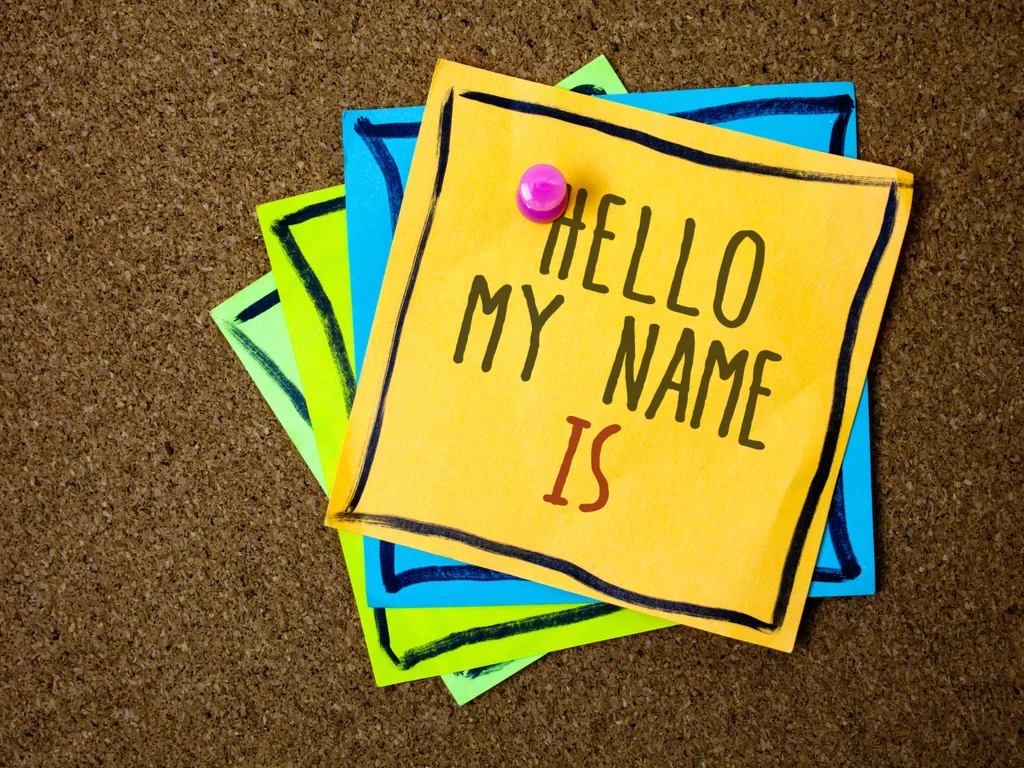
Your name tells you a lot about yourself. Like Juliet, you may argue that a name is meaningless and artificial and that the life choices that you make are from conscious decisions. Unfortunately for Mr. Shakespeare, many studies say differently.
Without realizing it, something as simple as your name can draw you to a specific career path, partner, and place. “What’s in a name?” is not just a quote that you may have read in high school when reading Romeo and Juliet. It has the impact to shape the person that you become.
Nominative determinism
With the rise of the internet and social media, there are memes and blog posts dedicated to examples of people whose jobs humorously match their names, such as a Doctor named Docktor or a chiropractor named McCracken. However, you may not realize that this similarity between jobs and names has a scientific term: Nominative Determinism.
Nominative determinism is a phrase which refers to a theory that people are drawn to jobs that match their names, such as NASCAR driver Lake Speed and Philosopher John Wisdom. Though the internet and social media may bring funny examples of nominative determinism directly to your phone, the term has been around long before the internet. The term was first used in the New Scientist magazine in 1994, and the idea that people are drawn to careers that are similar to their names was suggested in 1952 by psychologist Carl Jung. While it may be pure chance that your dermatologist’s name is Rash or your butcher’s name is Slaughter, there are supportive scientific claims within the field of psychology.
If Nominative determinism is real, are there other subconscious reasons that we choose the partners that we do or the names that we give our children?
Implicit egotism
Nominative determinism is part of “implicit egotism,” which is a psychological theory that suggests that we are attracted to jobs, people, and things that remind us of ourselves. Typically, our subconscious guides our choices based on what we connect with. In 2002, the Journal of Personality and Social Psychology published “Why Susie Sells Seashells by the Seashore: Implicit Egotism and Major Life Decisions” by Brett W. Pelham, Matthew C. Mirenberg, and John T. Jones.
In the study, the researchers found that people tend to prefer things that they connect with, such as finding a partner who has the same birthday or moving to a town with a name that is phonetically similar as theirs. For example, if you have a “Saint” name, like Paul, John, or Mark, you are more likely to live in a “Saint” city, such as St. Paul and St. Louis. Want to try this theory? Take a look at the people around you and see for yourself!
Name-letter effect
Similarly, studies show that people tend to be more attracted to people whose names start with the same letter as their own, such as a Rachel being attracted to a Robert or a James to a Jennifer. This theory also applies to last names, as a person with the surname Jones may be more attracted to a Johnson than a Groff. Known as the name-letter effect, it was first identified in 1985 by Belgian psychologist Jozef Nuttin.
Typically, the first letter a child learns is the first letter in their name, which often results in associations that are positive and long-lasting. In his research, Nuttin found that people tend to show a preference for letters that appear in the initials of their first and last name.
Many researchers believe that a name-letter effect is a form of implicit egotism, as a result of people’s propensity to view similarities to themselves as being highly positive. As such, the name-letter effect often impacts the names that we give our children.
Baby names
When you choose a name for your child, you are choosing the name that will most likely define them. Below is a list of boy and girl baby names for “strong,” “beautiful,” “love,” “hope,” “light,” “earth, “fire,” “hunter,” flower, “royalty,” and “holy.”
Strong
Boy names:
- Aaron: Hebrew for “exalted” and “strong”
- Bernard: Means “strong as a bear”
- Ethan: Hebrew for “strong”
- Griffin: Welsh for “strong lord”
- Liam: Means “strong-willed warrior”
Girl names:
- Audrey: Means “noble strength”
- Brianna: Means “strong”
- Matilda: Means “battle,” “might,” or “power”
- Philomena: Greek for “lover of strength”
- Valarie: Latin meaning “brave” and “strong”
Beautiful
- Beau: French for “handsome”
- Belle: The feminine form of “Beau”
- Rosalind: Latin and means “pretty rose”
- Tegan: English name meaning “beautiful person”
- Venus: Name of the Roman goddess of beauty
Love
Boy names:
- Dmitri: Means “lover of the earth”
- Carwyn: Welsh name meaning “fair love”
- David and Davis: Means “beloved”
- Leif: Means “love” or “heir”
- Lennan: Irish for “lover”
Girl names:
- Amara: Means “lovely forever”
- Amy: Means “beloved”
- Esme: Means “esteemed” and “beloved”
- Imogen: Means “beloved child”
- Vida: Means “dearly loved”
Hope
Boy names:
- Dillion: Of Irish origin and means “ray of hope”
- Jesse: Hebrew for “gift”
- Matthew: Of English origin and means “Gift or hope of the Lord”
- Zane: Means “gift” and “beautiful”
Girl names:
- Ashia: Arabic for “life and hope”
- Estelle: Of French origin meaning “star”
- Faith: Means hope
- Stella: Of Latin origin meaning “star”
- Violet: English for “faith in the language of flowers”
Light
Boy names:
- Apollo: “God of light” from Greek mythology
- Beacon: Old English for “signal light”
- Chind: Hebrew for “moon” and “light”
- Ivar: Of Hebrew origin meaning “light”
- Uri: Of Hebrew origin meaning “my light”
Girl names:
- Dawn: Of Old English
- Ilona: Hungarian for “light”
- Luz: Spanish for “light”
- Phoebe: From Greek mythology, meaning “brilliant and radiant”
- Zia: Arabic for “light and splendor”
Earth
- Adam: Hebrew meaning “Son of the Red Earth”
- Addison: English meaning “Son of the Red Earth”
- Bartlett: Hebrew meaning “Son of the Red Earth”
- Gaia: From Greek mythology, meaning “Earth”
- Seb: Egyptian for “God of Earth”
Fire
- Adara: Hebrew for “fire”
- Aidan: Of Gaelic origin meaning “fire”
- Hestia: Greek Goddess of fireside and chastity
- Joash: Means “fire of Yahweh”
- Phoenix: Derived from the mythical bird
Hunter
- Caine: Means “Spear hunter”
- Chase: Means “hunter”
- Diane: Means “celestial hunter”
- Hunter: Self-explanatory
- Orion: A hunter in Greek mythology
Flower
- Daisy
- Holly
- Jasmine
- Lily
- Poppy
Royalty
- Juno: Latin for “Queen of the Heavens”
- Raina: Slavic for “queen”
- Rory: Irish for “red king”
- Ryan: Irish for “little king”
- Sarah: Hebrew for “princess”
Holy
- Ariel: Hebrew meaning “The Lion of God”
- Bodhi: Of Sanskrit origin meaning “awakening,” and “enlightening”
- Grace: Of English origin meaning “goodness,” and “generosity”
- Theodore: Greek meaning “Gift of God”
Titus: Of Latin origin



